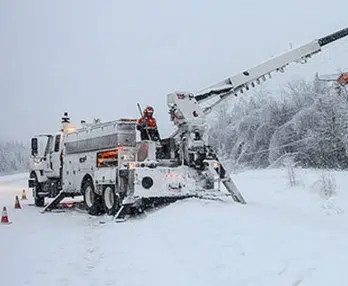As the frequency and intensity of natural disasters and climate-related emergencies escalate nationally, Canada's emergency management ecosystem is at a critical juncture. With the 2023 wildfire season being one of Canada's worst on record and the summer of 2024 recently declared the hottest ever on record by the EU climate change monitor, the need for climate-adaptive infrastructure, collaboration, and advanced technologies is increasing in urgency.
National Concerns: A Survey Reveals Gaps in Preparedness
The survey, commissioned by dmg events, found that Canadians are increasingly worried about the nation's preparedness for natural disasters. This anxiety stems from recent events, such as the devastating wildfires that ravaged parts of Canada in 2023 and the record-breaking heat waves experienced in 2024. The survey results highlight a pressing need for improved disaster response strategies and climate-adaptive infrastructure.
Key Findings from the Survey
The survey revealed several key insights into Canadians' perceptions of emergency preparedness:
-
Lack of Confidence: Over 60% of Canadians believe the country is not adequately prepared for future emergencies, indicating a significant gap in public confidence.
-
Call for Action: The survey also indicated a strong desire for enhanced communication from government officials about disaster preparedness strategies and a greater focus on proactive measures.
-
Need for Collaboration: The research highlighted the importance of fostering collaboration among different levels of government, private sectors, and local communities to build a more resilient emergency response framework.
CEPCA: A Platform for Collaboration and Innovation
In response to the growing need for a unified and national approach to emergency management, the Canadian Emergency Preparedness and Climate Adaptation Convention (CEPCA), organized by dmg events and hosted in Ottawa, Ontario, from September 24 to 26, 2024, was created by experts in emergency preparedness and climate adaptation. CEPCA aims to foster collaboration, break down silos, and create resilient infrastructure and communities across Canada.
Investing in Resilience: Building a Safer Future
The survey results and the focus of CEPCA underscore the importance of investing in resilience. This means strengthening infrastructure, improving emergency response systems, and promoting collaboration across sectors to create safer communities.
Events like CEPCA will play a key role in fostering the exchange of best practices and promoting investment in innovative solutions such as real-time early warning systems. They will also examine the key barriers to cross-sector collaboration, including national versus local decision-making. These advancements are essential to building a more resilient emergency response framework that can handle the rising challenges posed by a changing climate.
A Call to Action: Shaping a More Secure Future
The survey findings and the upcoming CEPCA convention serve as a call to action for all Canadians. The need for robust and adaptable emergency preparedness strategies is more pressing than ever. By fostering a collaborative approach and investing in innovation, we can build a more resilient and secure future for our communities.
The message is clear: we must work together to address the challenges posed by climate change and ensure that Canada is prepared to face future emergencies head-on. The time to act is now.


















